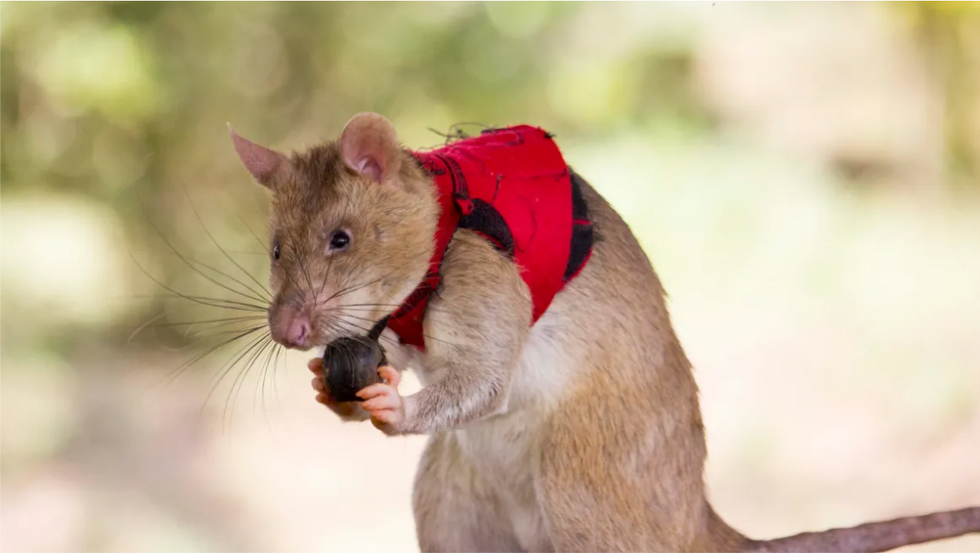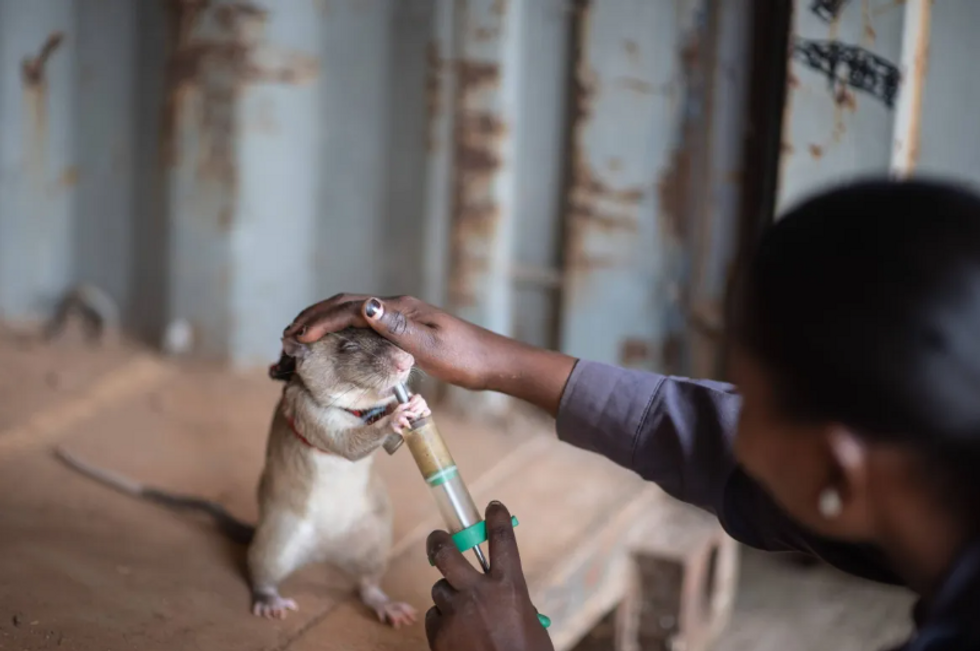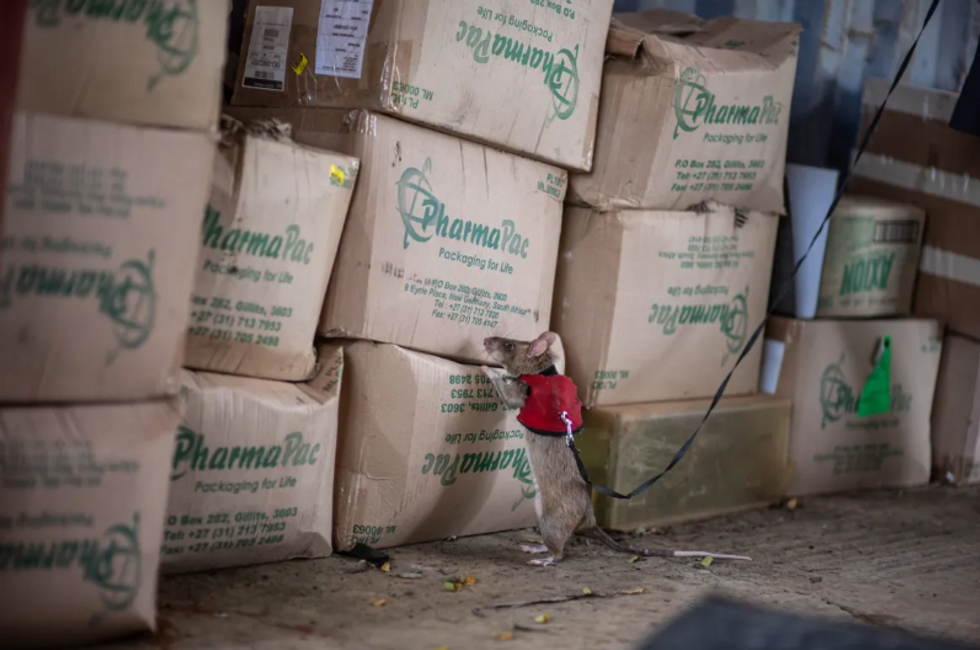Scientists train giant RATS named 'Attenborough' and 'Betty' to sniff out smuggled ivory and rhino horn

The rats, named Kirsty, Marty, Attenborough, Irwin, Betty, Teddy, Ivory, Ebony, Desmond, Thoreau and Fossey, were trained at APOPO Training and Research Centre in Tanzania
Don't Miss
Most Read
Scientists are training giant rats to sniff our smuggled ivory and rhino horn, it has been announced.
A new study published in Frontiers in Conservation Science has shown that African giant pouched rats can be trained to sniff out items highly prized by traffickers, including pangolin scales, elephant ivory, rhino horn and African blackwood.
Dr Isabelle Szott, a researcher at the Okeanos Foundation and first co-writer of the study, said: "Our study shows that we can train African giant pouched rats to detect illegally trafficked wildlife, even when it has been concealed among other substances."
This innovative approach could have a significant impact on combating the multi-billion-dollar illegal wildlife trade, which is estimated to be worth at least $23billion annually.

A new study published in Frontiers in Conservation Science has shown that African giant pouched rats can be trained to sniff out items highly prized by traffickers
|APOPO
The rats, named Kirsty, Marty, Attenborough, Irwin, Betty, Teddy, Ivory, Ebony, Desmond, Thoreau and Fossey, were trained at APOPO Training and Research Centre in Tanzania.
Their training involved several stages, beginning with holding their noses in a hole containing the target scent.
Correct performance was rewarded with flavoured rodent pellets.
The rats were also exposed to non-target odours like electric cables, coffee beans and washing powder, which poachers use to mask wildlife scents.
Remarkably, the rats demonstrated an ability to recall scents they hadn't encountered for up to eight months.
This suggests their cognitive retention performance is comparable to that of dogs.
Dr Kate Webb, an assistant professor at Duke University and first co-writer of the study, noted: "The rats also continued to detect the wildlife targets after not encountering that species for a long period."

Their training involved several stages, beginning with holding their noses in a hole containing the target scent
|APOPO
The use of rats for wildlife detection offers several advantages over traditional methods, with Dr Szott believing they could soon make an impact at transport hubs worldwide.
"I think that once rats begin operations and make their first 'bust' demand for them might increase quite rapidly", Dr Szott told The National.
Compared to dogs, rats are smaller and more manoeuverable, making them better suited for confined spaces like cargo holds.
They are also more cost-efficient to train, maintain, and transport.
Crawford Allan, vice president of nature crimes and policy advocacy at the WWF US, emphasises the need for cheaper, sustainable detection solutions in Africa.
He states: "I'm hopeful that (using rats) for detecting wildlife will be a low cost, low impact, low footprint operation."
APOPO, the non-profit organisation behind this initiative, has already conducted a proof-of-concept study at the seaport of Dar es Salaam in Tanzania.

The use of rats for wildlife detection offers several advantages over traditional methods
|APOPO
The rats successfully found over 80 per cent of planted targets, even when items were concealed by scent-masking products.
The rats wear custom-made vests with a small ball containing a microswitch.
When they detect a target, they pull the ball, triggering a beeping sound to alert their handler.
APOPO plans to carry out further operational trials at Dar es Salaam's seaport and airport.
The next steps will focus on optimising deployment strategies, including testing the rats' performance on long leads versus free-roaming.
There has also been interest in wildlife detection rats from Singapore and France, suggesting potential for international deployment.











